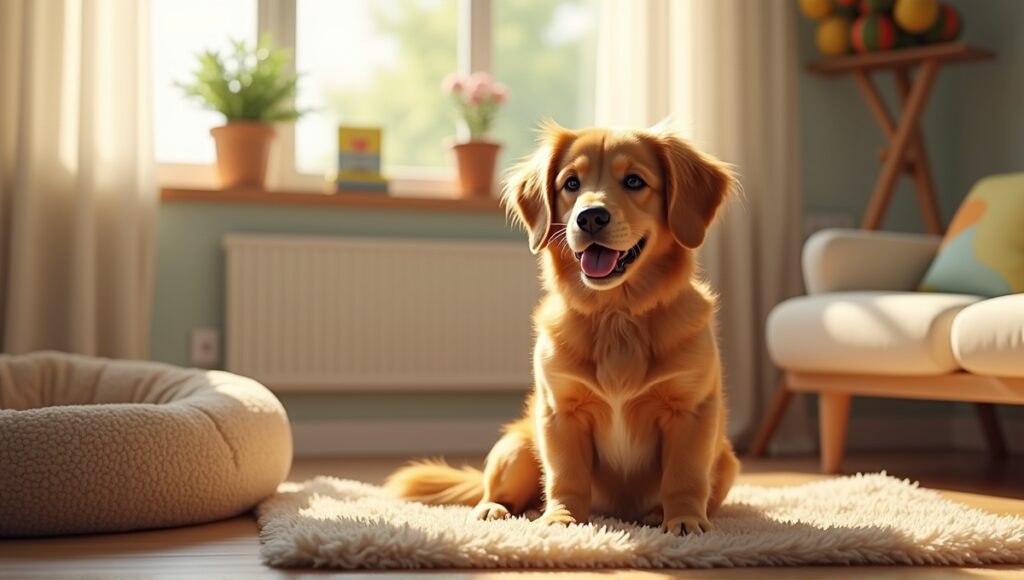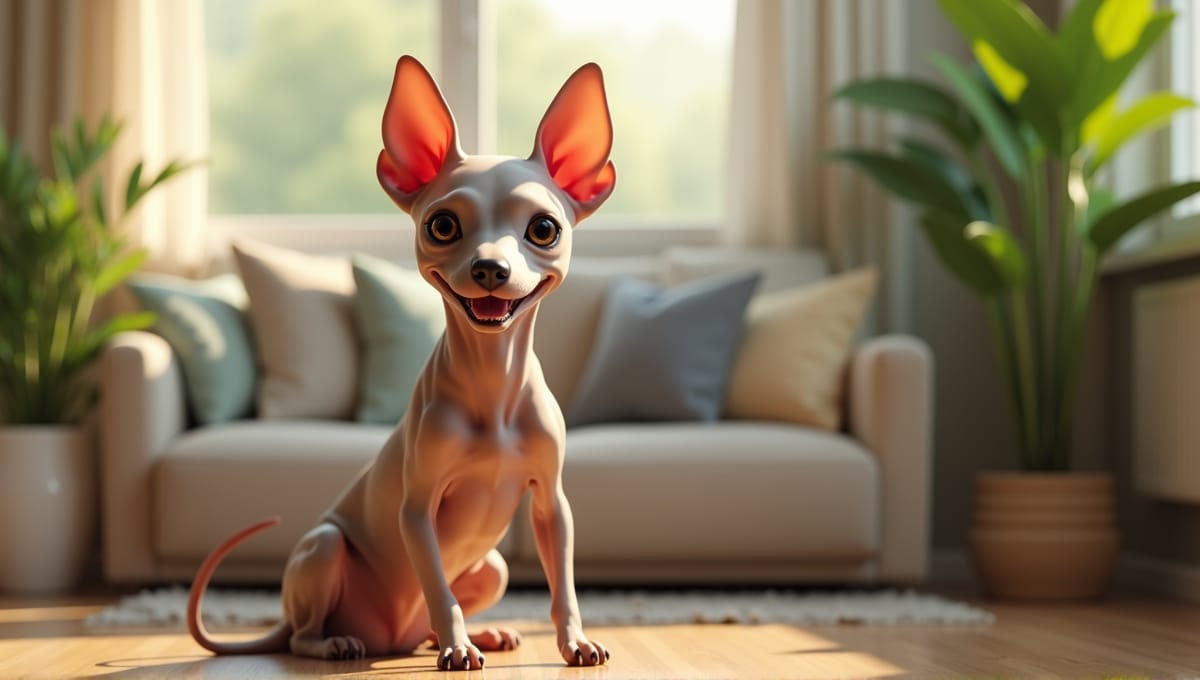Dogs are not just pets; they’re loyal friends who enhance our lives. So with hundreds of breeds to choose from, how do you know which one is best for you? I’ve worked with dogs of all breeds for many years, and I can tell you the best dog breed for you based on your lifestyle and preferences.
Understanding Companion Dogs
Dogs have been faithfully serving humans for thousands of years. Companion dogs hold a special place in dogdom. These breeds are specifically designed to be our companions and provide emotional support. They are excellent at human socialization, and they love being a part of a family.
Socialization is very important for dogs. Here’s why:
- It prevents loneliness and anxiety.
- It encourages better behavior.
- It promotes better overall health.
- It strengthens the human-dog bond.
Companion dogs are not the same as working dogs. Working dogs perform specific tasks, such as herding or guarding. The main task of a companion dog is to be our friend and make us happy.
So, what makes a dog a good companion? It’s all about the dog’s personality. The best companion dogs are friendly, patient, and easy to train. Additionally, they should align with your lifestyle. For example, if you’re more of a homebody, a high-energy dog probably isn’t the best companion for you.
I’ve seen my fair share of dogs during my time volunteering at the shelter. The dogs that make the best companions are very adaptable and friendly. These dogs are happy just hanging out with you or going for a quick walk, and they’re very good at reading your emotions and providing comfort when you’re feeling down.
Qualities of the Best Companion Dogs

The best companion dogs possess specific characteristics that make them excellent roommates for humans. Their temperament is the most important thing. You need a dog with a friendly, patient, and good-natured temperament. These dogs should also be comfortable in different environments without feeling anxious or acting aggressively.
Adaptability is also key. A companion dog should feel at home in a range of environments. Whether you reside in a tiny apartment or a large home, a good companion dog is one that can adapt.
Size is another consideration. Some people like small, cuddly lap dogs, while others prefer larger dogs they can hug. Again, it depends on the size of your home and your lifestyle. If you’re interested in small mixed breed dogs, they can be a suitable option for those who live in limited spaces.
Energy level is another factor. If you aren’t very active, a high-energy dog probably isn’t a great companion.
You should also look for companion dogs that are intelligent and easy to train. The more intelligent and eager to please the breed, the easier they are to train. And the easier both of your lives will be.
In my experience working at the pet store, I’ve seen why these traits are so important. Dogs with these traits tend to form stronger bonds with their owners. They also tend to have fewer behavioral issues.
Top Companion Dog Breeds
Companion dogs come in all shapes and sizes. Here are the top choices by size:
Small companion dog breeds:
- Cavalier King Charles Spaniel
- Pug
- Shih Tzu
- Maltese
- Yorkshire Terrier
Medium companion dog breeds:
- Beagle
- Cocker Spaniel
- Whippet
- Basset Hound
- Bulldog
Large companion dog breeds:
- Golden Retriever
- Labrador Retriever
- Greyhound
- Standard Poodle
- Bernese Mountain Dog
For allergy sufferers, hypoallergenic dogs are a good option. These include Poodles, Bichon Frises, and Portuguese Water Dogs. They don’t shed as much, which can help minimize allergic reactions.
In the shelter, I observed how well these breeds acclimated to various families. Small breeds were excellent for people living in apartments. Medium breeds were adaptable and fit into a wide variety of homes. Large breeds were excellent for active families or families with large yards.
Keep in mind that each dog is an individual. While breed characteristics are a good general guideline, focus on finding a dog that matches your lifestyle and preferences.
Popular Companion Dog Breeds and Their Characteristics

Here are a few of the most popular companion dog breeds and why they have become favorites among pet enthusiasts.
- Golden Retrievers are friendly and intelligent, and they get along well with kids and other pets. Many of these traits also apply to Labrador Retrievers, with the added benefit that they are very energetic and playful.
- Bulldogs are calm and loving giants, which makes them a great option for families with kids. Poodles are intelligent and easy to train, and they come in various sizes to accommodate different living scenarios.
- Chihuahuas are tiny dogs with big personalities, and they are fiercely loyal and form strong bonds with their people.
Here’s a breed comparison:
| Breed | Size | Energy Level | Trainability | Grooming Needs |
|---|---|---|---|---|
| Golden Retriever | Large | High | High | High |
| Labrador Retriever | Large | High | High | Medium |
| Bulldog | Medium | Low | Medium | Low |
| Poodle | Varies | Medium | High | High |
| Chihuahua | Small | Medium | Medium | Low |
I’ve observed each of these breeds in the veterinary clinic. 1. Golden and Labrador Retrievers were always very eager to please. 2. Bulldogs were very patient during our exams. 3. Poodles picked up on training very quickly. 4. Chihuahuas displayed a lot of courage for their size.
Less Common but Excellent Companion Dog Breeds
While many people are familiar with popular breeds, there are a few hidden gems among dog breeds that are less common. Yet, these breeds are still excellent options for a pet.
- Beagles are friendly and excellent with children. They have an incredible sense of smell, and you can imagine the mischief that often leads to.
- Brussels Griffons are small in size but have a lot of personality. They are also very sweet and enjoy being close to people.
- Newfoundlands are massive dogs, but they are incredibly gentle. While it may seem as though they would make a better guard dog, they actually have the reputation of being a “nanny dog” because of how well they do with children.
- Collies are highly intelligent and very easy to train. They are also very loyal and protective.
- French Bulldogs are certainly becoming more common, but they’re still less common than other breeds mentioned. They are also very adaptable and have a great personality. They are a great option for someone looking for a medium-sized dog.
When I worked at a pet retail store, these were some of the breeds I always recommended to people looking for something a bit unique. Beagle owners always had some funny stories to share about their dogs. Brussels Griffon owners loved the big personality of the dog fits in a small package.
Newfoundland owners raved about how gentle their dogs are. Collie owners were impressed with how intelligent their dogs were. French Bulldog owners were often people living in condos and apartments who wanted something more unique than a Yorkie or Chihuahua.
Choosing the Right Companion Dog for You
Selecting the right dog breed is a very personal choice. So, consider your lifestyle. Do you live in an apartment? Do you have an active lifestyle? Or do you prefer to lay low at home? These factors will help you determine the best breed for you.
Think about allergies and grooming.
Some dogs shed a lot while others require professional grooming.
Consider how much time and money you’re willing to invest in grooming.
Your experience with dogs is also important.
If you’ve never owned a dog before, you might want a breed that’s easy to train.
However, if you’re an experienced dog owner, you might enjoy the challenge of a breed that’s more independent.
Spending time with the dog before you adopt is essential.
You may find that a dog looks great on paper but for whatever reason, you just don’t connect with it when you meet it in person.
Caring for Your Companion Dog

Once you’ve selected your ideal companion dog, proper care is key. Good nutrition is the basis of your dog’s health. Select high-quality food that is appropriate for your dog’s age.
- Puppies, seniors, and dogs with health problems may have special dietary needs.
Exercise and mental stimulation are critical. Even the tiniest companion dogs need daily walks and playtime.
- Puzzle toys keep your dog’s brain active.
- The amount of exercise required depends on the breed and the individual dog.
Regular vet check-ups are essential.
- Stay current on vaccinations and preventative medicine.
- When you catch health problems early, they’re often much easier to treat.
Grooming is about more than just aesthetics. It directly impacts your dog’s health.
- Brush your dog’s teeth regularly, clip their nails, and keep their coat groomed.
- Some breeds require regular visits to the groomer, while others only need an occasional bath.
Training and socialization are continuous efforts.
- Start as early as you can, but keep in mind that it’s never too late to train a dog.
- Use positive reinforcement.
- Socializing your dog helps them feel comfortable in various situations.
I’ve witnessed the impact of proper care on a dog’s life. At the shelter, we frequently received dogs that were clearly not well-cared for.
- When you provide a dog with good nutrition, exercise, and love, it’s amazing to watch them transform into an excellent companion.
For more options, explore the best small family dogs that could be perfect for your home.
In Summary
Companion dogs add so much joy and comfort to our lives. They’re more than just pets; they’re loyal friends. Each breed has its own appeal, from Golden Retrievers to Chihuahuas. Just be sure you select a breed that matches your lifestyle. With the right care, food, and love, you’ll have a happy, healthy companion for years to come. You can do this!






